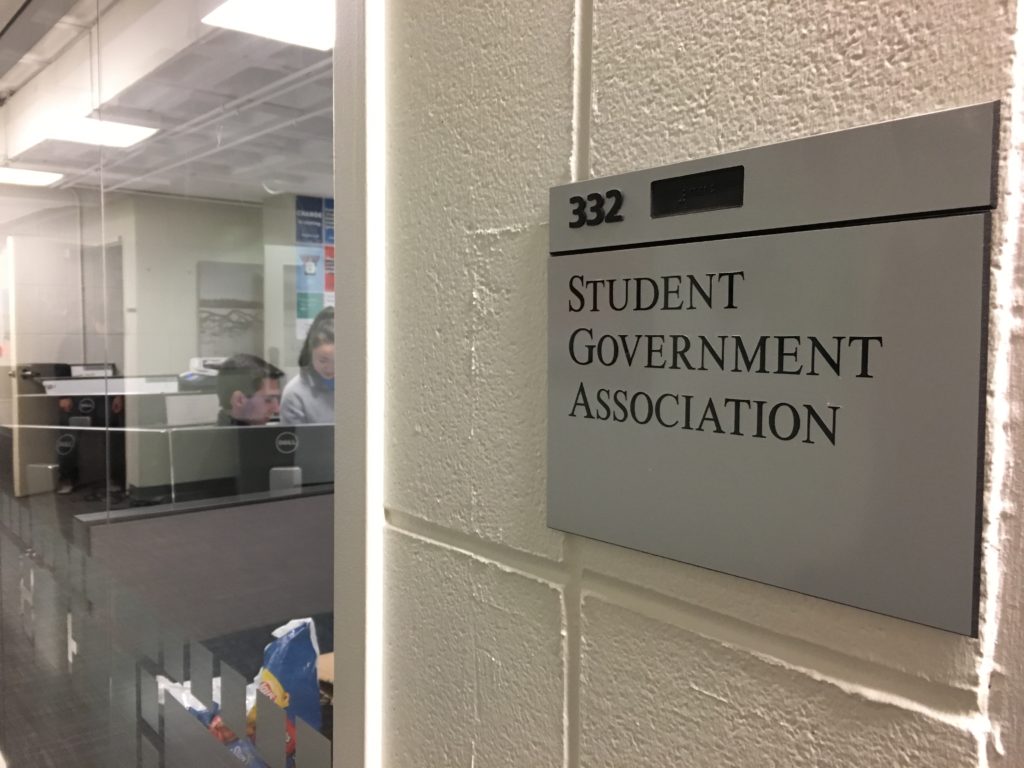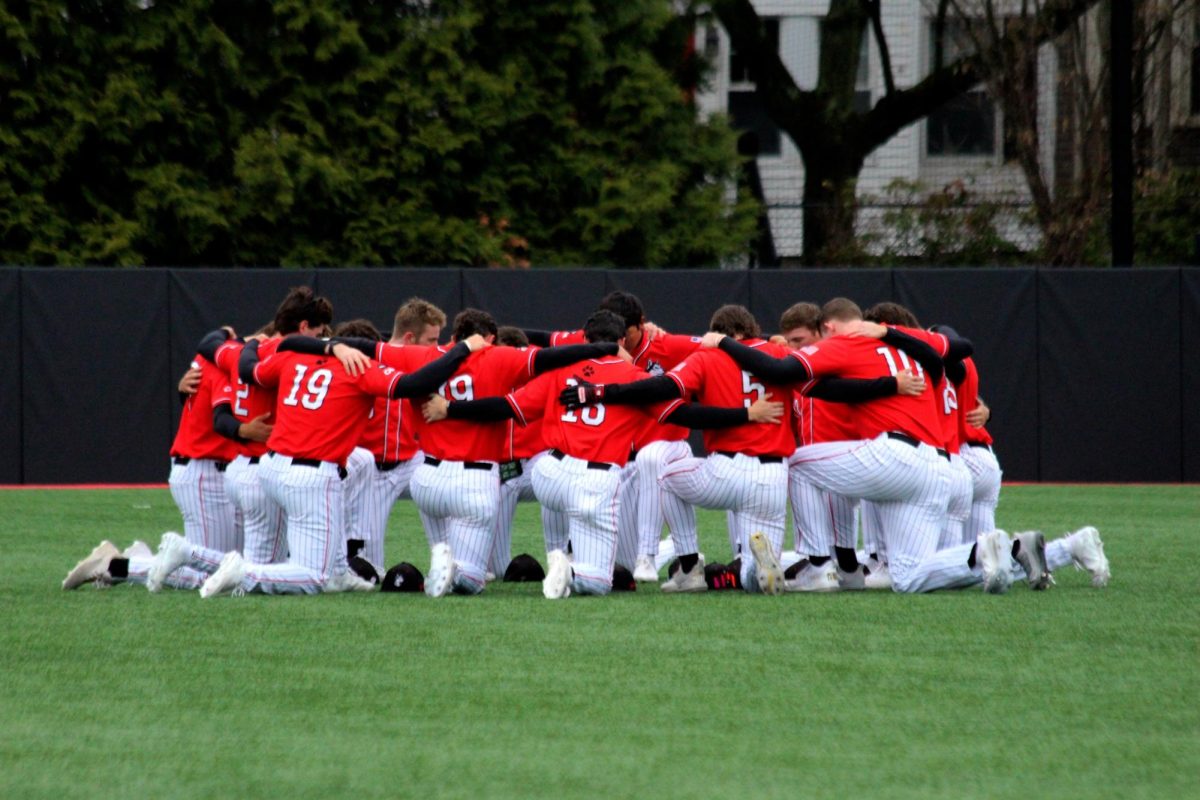Student government extends elections, invalidates first 1,500 votes
Student Government Association offices are located on the third floor of Curry Student Center. / Photo by Lauren Scornavacca
March 23, 2017
Voting for the Student Government Association (SGA) Direct Elections, originally set to close Thursday, was extended to end Monday at 11:59 p.m. The SGA Elections Committee decided Wednesday night to invalidate and reset the ballots for nearly 1,500 students who voted on an incomplete version of a referendum question about giving local neighborhoods decision-making power in university affairs.
Students could vote online through the myNEU portal starting March 13. The misprinted referendum question, sponsored by Students Against Institutional Discrimination (SAID), was cut off about halfway through the sentence when it first appeared on the ballot. The full measure was supposed to read: “Should Northeastern give residents of surrounding neighborhoods final decision-making power, when supported by a majority of the affected neighborhoods’ constituents, in University development and community projects?”
However, it was displayed on the ballot on Thursday during the first 14 hours of voting as: “Should Northeastern give residents of surrounding neighborhoods final decision-making power, when supported by the majority of the affected.”
“We were shortchanged,” said SAID member Joe Taché, a junior entrepreneurship major.
The ballots cast during the 14-hour time frame will be invalidated entirely, including the votes for SGA executive office and other referenda. SGA President Elliot Horen said those votes have been removed from the database, and the SGA Vote tab will now appear on the myNEU portal again for affected individuals. Northeastern Information Technology Services sent an e-mail to those students to notify them that they can submit a new ballot through the portal.
The contest for the positions of SGA student body president and executive vice president is between Suchira Sharma and Paulina Ruiz of the Suchira + Paulina: ‘Believe in More’ campaign and Alex Bender and Jake Grondin of the ReNUal campaign. The Husky Environmental Action Team (HEAT) also sponsored two referenda questions, one to ban of plastic water bottles on campus and another to expand renewable energy on campus.
SGA Elections Committee Chair Alexander Carlin, a senior political science and economics double major, said he could not talk about how the committee members came to the decision to invalidate the votes because it was agreed upon in an executive discussion, which was closed to the public.
In a statement on Thursday afternoon, Horen said members reviewed a test ballot application before the election and found no errors, but failed to confirm that the ballot was accurate once it had been released. SGA did not immediately halt voting once the problem was identified.
“What happened to the SAID question simply should not have occurred, especially given how hard the sponsors worked to get the question on the ballot,” Horen said. “Referenda sponsors have a right to expect that all students have an equal opportunity to fairly vote on their questions. That didn’t happen on the first day of SGA Direct Elections.”
Before the Elections Committee vote, there was a public hearing in Ryder Hall on whether there should be no action, a full reissuing of the ballots or a partial reissuing that only included the SAID referendum. Members of all four campaigns—Suchira + Paulina: Believe in More, ReNUal, HEAT and SAID—were present for the debate and unanimously advocated for re-doing the full ballot. Advocates asked for a three-day extension for voting.
“We agree with SAID that it’s important that they get the full vote,” said HEAT President Max Wagner, a sophomore business administration major. “That’s the only thing that’s equitable, and it’s important for the body to do that.”
During an open discussion at the hearing, SGA Senator Brian Hamp, a junior bioengineering major, asked SAID why members thought resetting the full ballot, rather than a partial ballot, was necessary.
“Different students have different priorities in terms of what they want to vote for on the ballot,” SAID member Prasanna Rajasekaren, a junior economics major said. “If a student wanted to vote only on the presidential campaign, they likely wouldn’t be incentivized to vote on a partial re-vote of just our question, and we think that’s unfair.”







